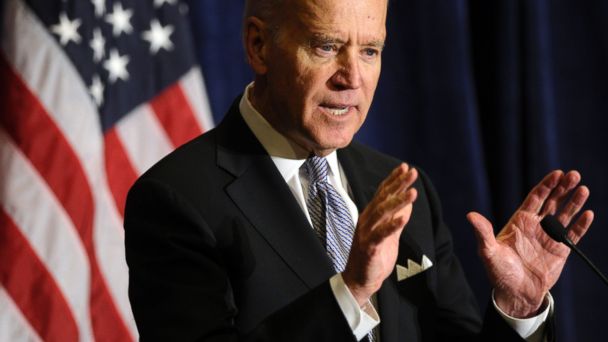Why Is Vice President Biden Visiting Ukraine's Backyard?

In this Feb. 27, 2014, file photo, Vice President Biden speaks at the Association of State Democratic Chairs Meeting in Washington. Susan Walsh/AP Photo.
With the specter of Russian aggression looming large over Europe, Vice President Joe Biden will meet with leaders this week who represent Poland and the Baltic nations of Estonia, Latvia and Lithuania.
Biden's message to them over the next two days will be clear - the United States, NATO and the EU have your back but please let us handle it and don't make things worse!
The Baltics have a long history with the kind of Russian interference seen in Crimea: all three nations were forced to sign pacts permitting military bases just before they were annexed by the Soviet Union in 1940 via rigged elections (sound familiar)?
Now that Russia has made its move in Ukraine, Baltic leaders have been among the most vocal in the European Union calling for tough sanctions.
"First it's Ukraine, Moldova will be next and, finally, it can reach the Baltic states and Poland," Dalia Grybauskaite, Lithuania's president, said last week in the Financial Times.
In addition, Estonia, Latvia and Lithuania also have significant Russian-speaking populations who don't exactly live in harmony - increasing the fear of another Crimea.
In Latvia, Russians and other non-native Latvians are considered "non-citizens" and are denied citizenship rights, including those to vote and own land without restriction.
And in a further rebuke of Russian influence, 1,500 Latvians who fought in the local unit of Nazi Germany's Waffen SS held their annual parade yesterday, which they say was part of their effort to fight for Latvian freedom and against the return of the Soviet Red Army at the end of WWII.
Neighboring Estonia decided in 2007 to relocate a controversial Soviet war memorial from the center of its capital, Tallinn, to a military cemetery, triggering violence to break out between police and Russian-speaking Estonians. A spate of cyber-attacks broke out in the country, which Estonia blamed on the Russians.
Poland, who has long wanted to ramp up a missile defense system against Russia, has fired up its rhetoric as well as plans for increased military might (President Obama cancelled a proposed similar shield intended to protect against Iran in 2009 as part of the "reset" with Russia).
Polish Prime Minister Donald Tusk said recently, "The conflict should accelerate the modernization of the Polish army," according to Reuters.
The United States is already sending 12 F-16 fighter jets and 300 airmen to Poland as part of augmented training announced by the Pentagon last week because of the situation in Ukraine.
ABC's Luis Martinez contributed to this report.